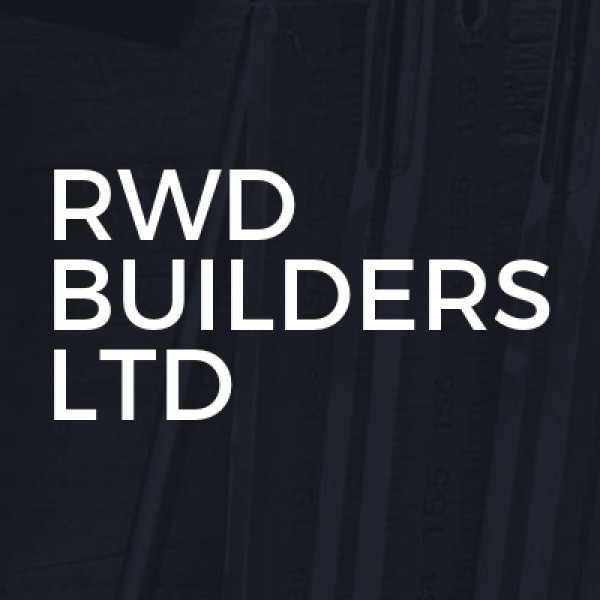Extension Builders in Woodbridge
Sheeran Building is a reputable and reliable business based in the charming village of Stowupland, offering a wide array... read more »
Welcome to Gary J Potter Carpentry & Renovation, your go-to experts for all things carpentry and renovation in Red Lodge, Suffo... read more »
Welcome to Palatial Developments Ltd, your premier choice for top-notch tradespeople services in Great Waldingfield and the surrounding S... read more »
Welcome to Dove Stream Plumbing and Heating Ltd, your trusted partner for all plumbing and heating needs in Needham Market and across Suf... read more »
TDL Brickwork, a distinguished construction company based in New Mistley, proudly offers exceptional builders, extension... read more »
Welcome to RWD Builders Ltd, your premier choice for expert building and renovation services in Bury St Edmunds and throughout... read more »
Welcome to AJM Carpentry Building Services, your premier choice for expert builders, carpenters, painters & decorators, loft conversions,... read more »
Welcome to B.UK Property Services, your premier choice for expert tradespeople in Ramsey and across Essex. Specialising in extension buil... read more »
M Fuller Building Services Ltd, nestled in the charming village of Cotton, Suffolk, is your go-to exper... read more »
Welcome to E J Brown Builder, your trusted partner for all your building needs in Eye and across Suffolk. As a premier provider of buildi... read more »
Welcome to Open Planned Living, your trusted partner for all your building and renovation needs in Normanston and across Suffolk. As a le... read more »
Welcome to Alex Grace Builders, your trusted partner... read more »
Welcome to ND Bates General Builders, your trusted pa... read more »
Welcome to MWD Construction Ltd, your trusted partner... read more »
Welcome to J & S Builders, your trusted extension bui... read more »
Welcome to MC Build & Renovations, your go-to experts... read more »
Stewart Woods Carpentry and Joinery... read more »
Abbeygate Construction Ltd is a prem... read more »
LSJ Building And Maintenance: Premier Extensi... read more »
Welcome to A Cracknell Building, your trusted partner... read more »
Search Extension Builders in places nearby
Understanding the Role of Extension Builders in Woodbridge
When it comes to enhancing your living space, extension builders in Woodbridge play a pivotal role. These professionals are skilled in expanding homes, adding value, and creating more functional spaces. Whether you're looking to add a new room, extend your kitchen, or build a conservatory, extension builders are the experts you need. In this article, we'll explore the various aspects of hiring and working with extension builders in Woodbridge, ensuring you make informed decisions for your home improvement projects.
The Importance of Home Extensions
Home extensions are a popular choice for homeowners looking to increase their living space without the hassle of moving. They offer a cost-effective solution to accommodate growing families or changing needs. Extensions can range from simple single-room additions to complex multi-storey expansions. The key is to ensure that the extension complements the existing structure and enhances the overall aesthetic of the home.
Benefits of Home Extensions
- Increased Living Space: Extensions provide additional room for various purposes, such as a home office, playroom, or guest bedroom.
- Added Property Value: A well-executed extension can significantly increase the market value of your home.
- Customisation: Tailor the extension to meet your specific needs and preferences, ensuring it fits seamlessly with your lifestyle.
- Avoid Moving Costs: Save on the expenses and stress associated with relocating by expanding your current home.
Choosing the Right Extension Builders in Woodbridge
Selecting the right extension builders is crucial to the success of your project. It's essential to find professionals who are experienced, reliable, and capable of bringing your vision to life. Here are some factors to consider when choosing extension builders in Woodbridge:
Experience and Expertise
Look for builders with a proven track record in home extensions. Experienced builders will have a portfolio of completed projects and can provide references from satisfied clients. Their expertise ensures that they can handle any challenges that may arise during the construction process.
Licensing and Insurance
Ensure that the builders you choose are fully licensed and insured. This protects you from any liabilities in case of accidents or damages during the project. Licensed builders adhere to industry standards and regulations, ensuring quality workmanship.
Reputation and Reviews
Research the reputation of potential builders by reading online reviews and testimonials. Positive feedback from previous clients is a good indicator of the builder's reliability and quality of work. Additionally, ask for recommendations from friends or family who have undertaken similar projects.
Planning Your Home Extension
Before embarking on a home extension project, thorough planning is essential. This involves setting a budget, designing the extension, and obtaining necessary permits. Here's a step-by-step guide to help you plan your home extension:
Setting a Budget
Determine how much you're willing to spend on the extension. Consider all costs, including materials, labour, permits, and any unexpected expenses. It's advisable to set aside a contingency fund for unforeseen costs that may arise during construction.
Designing the Extension
Work with your builder or an architect to design the extension. Consider the purpose of the new space and how it will integrate with the existing structure. Ensure that the design aligns with your aesthetic preferences and functional needs.
Obtaining Permits
Check with your local council to determine if you need planning permission for your extension. Some extensions may fall under permitted development rights, while others require formal approval. Your builder can assist with the permit application process.
The Construction Process
Once the planning phase is complete, the construction process begins. This involves several stages, each requiring careful coordination and execution. Here's an overview of the typical construction process for home extensions:
Site Preparation
The first step is to prepare the site for construction. This may involve clearing the area, demolishing existing structures, and setting up temporary facilities for workers. Proper site preparation ensures a smooth construction process.
Foundation and Framing
The foundation is laid to support the new structure. This is followed by framing, where the skeleton of the extension is built. The framing stage includes constructing walls, floors, and the roof.
Utilities and Insulation
Once the framing is complete, utilities such as plumbing, electrical, and HVAC systems are installed. Insulation is also added to ensure energy efficiency and comfort in the new space.
Finishing Touches
The final stage involves adding finishing touches, such as flooring, painting, and fixtures. This is where the extension starts to take shape and resemble the final design. Attention to detail is crucial to achieve a polished and cohesive look.
Common Challenges and Solutions
Home extension projects can encounter various challenges, from budget overruns to design changes. Being prepared for these challenges and knowing how to address them is key to a successful project. Here are some common challenges and their solutions:
Budget Overruns
Unexpected costs can arise during construction, leading to budget overruns. To mitigate this, maintain a contingency fund and regularly review expenses with your builder. Open communication helps identify potential cost-saving measures.
Design Changes
Changes to the design during construction can cause delays and additional costs. To minimise this, finalise the design before construction begins and stick to the plan as much as possible. If changes are necessary, discuss them with your builder to assess their impact.
Weather Delays
Adverse weather conditions can delay construction. While this is often unavoidable, planning the project during favourable weather seasons can help minimise disruptions. Your builder should have contingency plans in place for weather-related delays.
Maximising the Value of Your Extension
To ensure your home extension adds maximum value, consider factors such as design, functionality, and quality of materials. A well-designed extension not only enhances your living space but also increases the overall value of your property.
Design and Aesthetics
Choose a design that complements the existing architecture of your home. A cohesive design enhances the overall appeal and ensures the extension looks like a natural part of the house.
Quality Materials
Invest in high-quality materials that offer durability and longevity. Quality materials may have a higher upfront cost but can save you money in the long run by reducing maintenance and repair expenses.
Functional Layout
Ensure the layout of the extension is functional and meets your needs. Consider factors such as natural light, ventilation, and accessibility when designing the space.
Environmental Considerations
Incorporating sustainable practices into your home extension can benefit the environment and reduce energy costs. Consider eco-friendly materials and energy-efficient systems to create a sustainable living space.
Eco-Friendly Materials
Choose materials that are sustainable and have a low environmental impact. Options include recycled materials, sustainably sourced timber, and low-VOC paints.
Energy Efficiency
Incorporate energy-efficient systems, such as solar panels, LED lighting, and high-efficiency appliances. Proper insulation and double-glazed windows can also improve energy efficiency.
Legal and Regulatory Compliance
Ensuring your home extension complies with legal and regulatory requirements is crucial to avoid potential issues. Work with your builder to navigate the necessary permits and approvals.
Building Regulations
Adhere to building regulations to ensure the safety and structural integrity of the extension. These regulations cover aspects such as fire safety, structural stability, and energy efficiency.
Planning Permission
Determine if your extension requires planning permission. Some projects may be exempt under permitted development rights, but it's essential to verify with your local council.
Frequently Asked Questions
- Do I need planning permission for a home extension in Woodbridge? It depends on the size and scope of the extension. Some projects may fall under permitted development rights, while others require formal approval.
- How long does it take to complete a home extension? The duration varies based on the complexity of the project. On average, a home extension can take several months to complete.
- Can I live in my home during the extension construction? In most cases, you can remain in your home during construction, although there may be some disruptions. Discuss this with your builder to plan accordingly.
- How do I choose the right extension builder? Look for experienced builders with a strong reputation, proper licensing, and positive client reviews.
- What factors affect the cost of a home extension? Costs are influenced by factors such as size, design complexity, materials, and labour. Setting a clear budget and discussing it with your builder can help manage expenses.
- How can I ensure my extension is energy-efficient? Incorporate energy-efficient systems, such as solar panels and LED lighting, and use proper insulation and double-glazed windows.
In conclusion, working with extension builders in Woodbridge can transform your home, providing additional space and enhancing its value. By carefully selecting the right builders, planning your project, and considering factors such as design, materials, and sustainability, you can achieve a successful home extension that meets your needs and exceeds your expectations.
Send a message















